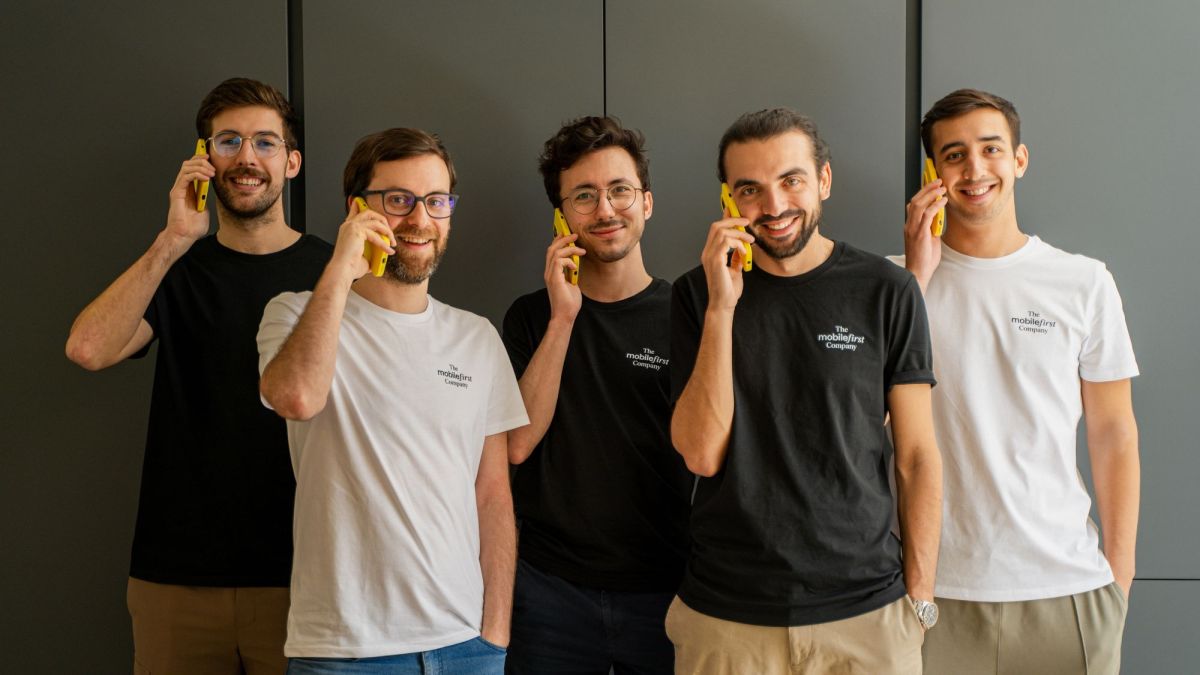Have you noticed the massive gap between consumer and business apps on your phone? While consumer apps are both beautifully designed and easy to use, business apps are simply painful to use.
A European startup is developing a suite of B2B apps that are designed for mobile first because phones have become the main computers for most people. And they’re calling their company… The Mobile-First Company.
When you download an app from this company, you can expect to be able to create an account from your phone (that’s not always the case for B2B apps) and perform everything from the device in your pocket. Too many companies that offer B2B tools treat mobile apps as companion apps and second-class citizens.
But the European startup doesn’t want to recreate Salesforce, Asana or Workday on mobile. Instead, the company plans to focus on small and medium businesses and address their needs one app at a time. Small companies don’t need a complicated enterprise software solution. They need one app to perform a set of tasks extremely well.
And The Mobile-First Company has plenty of ideas, such as building an app to create a quote, or another one to track expenses, or an app dedicated to managing the inventory in your workshop or small warehouse.
“The idea is really to build a suite of applications. It will not be an all-in-one app and that will be the main difference with other players. We don’t believe in the all-in-one model because people are scared of technology,” co-founder and CEO Jérémy Goillot told me.
A first app to track your inventory
Ignacio Siel Brunet, the co-founder and CTO of this new project, previously worked as VP of Engineering for Pomelo, a fintech infrastructure company in Latin America with 200 engineers working for the company.
While Siel Brunet is more experienced with the needs of large companies, he has also seen how B2B apps don’t work well with small businesses. “I know how to help big companies solve big problems. But on the other side I had this problem with my family. They own a furniture company but they have issues with invoicing, inventory, etc.,” he told me.
Many small companies simply rely on consumer apps to fill their needs. “They use Instagram as the showcase, WhatsApp as the CRM, a personal bank to run their financial aspects,” Goillot said. “Our DNA is to keep this B2C style of applications with this friendliness and mass-market appeal while also solving problems.”
The Mobile-First Company’s first app is Amoa, a mobile app to track your inventory. For instance, many garages rely on spreadsheets to track the number of spare parts they currently have in stock. But workers don’t usually spend their work day in front of a computer.
With Amoa, they can open an app, add parts by scanning a barcode, add other information, such as pricing details, and start using the app as the source of truth. When they pick something up from the shelf, they can remove the item from Amoa and move on.
Even if you don’t sell goods, managing an inventory can be useful. For instance, if you’re a wedding photographer, you might want to create an inventory of all your camera lenses and gear to make sure that you don’t leave anything behind. Similarly, nurses want to make sure they have everything they need before driving to the first patient.
Acting like a mobile gaming company
Amoa may or may not work. The idea is that The Mobile-First Company will develop, ship, iterate and kill ideas that don’t work so they can focus on the most promising ones. In my discussion with the founders, it felt more like talking with a casual mobile gaming company than a B2B software company. Eventually, the company plans to monetize the most promising apps with premium features that you can unlock with a paid subscription.
That’s because Jérémy Goillot, the CEO of the startup, already knows a few things about product-market fit as he previously worked for spend management startup Spendesk as head of growth. He was the fourth employee at the French fintech company that quickly became a unicorn.
When he left Spendesk, he spent some time traveling and looking at tech products and how they’re used outside of Europe and the U.S. “I traveled to Africa a lot, from Nigeria to Ghana and Kenya because I wanted to see other types of products. I traveled a lot in Latin America too,” Goillot said.
“And I was impressed by other types of companies. We are a huge fan of Indian companies — Zoho is one of them. We are a huge fan of Treinta as well — it’s a Colombian company.”
The Mobile-First Company raised €3.5 million ($3.8 million at today’s exchange rate) in a pre-seed round led by Lightspeed Venture Partners and Emblem. Many angel investors also participated in the round, including Xavier Niel (Kima Ventures), Thibaud Elzière (Hexa), Jean-Baptiste Hironde (MWM) and Rodolphe Ardant (Spendesk).
Now, the company wants to move quickly. “For the end of the year, our goal is to release six applications to have this high velocity of trying, killing, trying, killing to really upgrade the knowledge of the company,” Goillot said.
“We are able to build an application in two weeks. We are able to bring thousands of downloads a day,” he added. So let’s see how long it takes before The Mobile-First Company ships an app that you can spot in the wild when talking with a small business owner.
Source
#startup #believes #mobile #apps #businesses #work #consumer #apps
